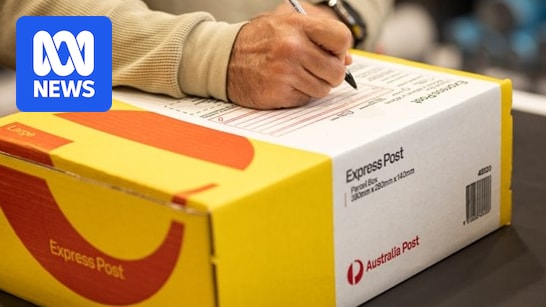
Australia Post has announced a temporary suspension of its transit shipping services to the United States, as the impending deadline for new tariffs under the Trump administration creates widespread disruption in global postal networks. The decision means that goods from other countries can no longer be shipped to the US via Australia, a method known as “transit” shipping.
“In line with a number of other postal operators, Australia Post has temporarily suspended its transit service to the US and will no longer accept transit items containing goods destined for the United States of America,” an Australia Post spokesperson confirmed. This suspension comes as low-value goods imported into the US are set to face additional tariffs starting next week.
Global Postal Networks in Disarray
Until now, parcels of goods from Australia worth less than $US800 ($1,200) were not taxed upon arrival in the US, thanks to the “de minimis” exemption. However, this tax exemption is scheduled to end on August 29 for imports from all countries, with parcels facing tariffs or flat fees. E-commerce businesses are reporting significant confusion and chaos as they attempt to navigate the impending changes.
The executive order formalizing these changes was issued on July 30, catching many postal operators worldwide off guard. Kate Muth, Executive Director of the US-based International Mailers Advisory Group (IMAG), described the situation as “a bit chaotic” from Washington, DC. “There’s a lot of uncertainty, a lot of concern about the postal stream being heavily impacted, and just a little over a week to get ready,” she said.
Australia Post is among the global carriers that have opted to suspend transit mail to the US as they grapple with these changes. “Transit mail is where a postal operator in one country uses the services of another postal operator to send it on to the final destination,” Muth explained. For example, the Philippines Post might use Australia Post to send mail to the United States due to low volumes or infrequent flights.
Impact on E-commerce and Retailers
The uncertainty surrounding the collection of tariffs has led to chaos for Australian e-commerce retailers. Brisbane-based brand Apéro has decided to halt shipping to the US this week. “The volatility in decision making, and the volatility of the market, and, quite frankly, the lack of ability of even Australia Post to address these issues in a timely manner, puts us, and all of Australian fashion, in a really precarious position,” Apéro co-founder Laz Smith stated.
IMAG’s Muth highlighted the overarching concern that many postal carriers are not equipped to “collect and remit” the duties specified by the executive order. “Australian Post is not set up to do that … they obviously have to work with either an airline carrier who is willing to do this, and we have not heard of any airline carrier that’s willing to,” she added.
Global Reactions and Future Implications
Several postal carriers globally have already taken precautionary measures ahead of the August 29 deadline by suspending shipping to the US entirely. This includes Bpost, a logistics company based in Brussels, and several others in Europe. PostNord, which services Sweden and Denmark, has also halted shipments to Puerto Rico. “Letters without goods will not be affected,” PostNord announced, ensuring customers and partners are kept informed.
While Australia Post has not confirmed whether it plans to halt US shipments entirely, the organization emphasized its commitment to keeping customers updated on the changes and their implications. Australia Post has been proactive in sending updates to merchant retailers and has uploaded information about the end of the de minimis exemption on its website.
As the deadline approaches, the postal service is exploring options to pay duties and taxes through an approved third-party platform provider on behalf of its merchants. The coming weeks will likely see further developments as businesses and postal services worldwide adapt to the new regulatory landscape.






